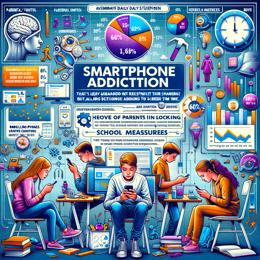Image created by AI
Education Minister Siviwe Gwarube Advocates for McDonald's Partnership Amid Public Criticism
Amidst a flurry of criticism and social media uproar, South Africa's Basic Education Minister, Siviwe Gwarube, has stood firm on the department's decision to partner with McDonald's. This partnership recently surfaced in public discourse after images of McDonald's branded, foldable desks distributed to students went viral online. These desks, vividly adorned in the fast-food chain's signature yellow and red, have sparked a national debate regarding corporate involvement in educational tools and resources.
The controversy ignited when these images began circulating on social media platforms, with many expressing concern over the implications of such branding in educational settings. Critics argued that integrating a fast-food logo into school supplies could inadvertently promote unhealthy dietary habits among children. Additionally, concerns were raised about the practicality of students, particularly from less privileged backgrounds, having to carry these desks to and from school.
Addressing these concerns at the 10th annual Basic Education Lekgotla in Boksburg, Minister Gwarube elucidated the thought process behind this collaboration. She emphasized the dire financial and infrastructural challenges that the education sector faces and how partnerships like these can offer practical solutions. The minister highlighted that the design and utility of the desks had received endorsement from UNESCO, affirming their suitability for educational use. Weighing just 2 kilograms, these desks were lauded by UNESCO for their portability and functionality.
Minister Gwarube passionately defended the initiative, pointing out the essential needs of many South African children who lack adequate spaces at home for academic activities. She argued that innovations such as the McDonald's desks could significantly aid in providing a dedicated workspace for these children, thus fostering a conducive learning environment outside of school premises.
Despite the backlash, the Basic Education Department maintains that the partnership was crafted with the intention of benefiting students, particularly those from economically disadvantaged backgrounds who are often the hardest hit by educational disparities. The initiative is seen as a step towards leveling the playing field by providing necessary educational tools to all students, regardless of their socio-economic status.
The debate around the McDonald's partnership underscores the broader issues of corporate influence in public sectors and the ongoing challenges facing South Africa's educational systems. As the dust settles, it remains to be seen how this partnership will impact educational practices and policies in the country moving forward. However, the commitment to innovative solutions in tackling educational inequality remains a priority for the Basic Education Department under Minister Gwarube's stewardship.










